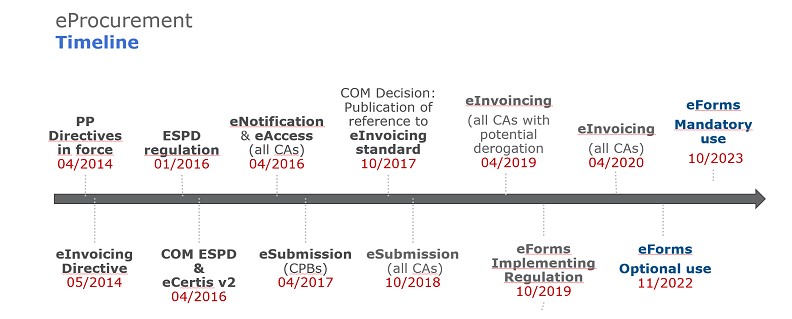ESPD and the decline of the PQQ
Contents |
[edit] Introduction
A pre-qualification questionnaire (PQQ, sometimes referred to as a supplier assessment questionnaire) sets out a series of questions for potential tenderers to answer regarding their level of experience, capacity and financial standing. The answers to these questions enable the client to produce a short list of suppliers that are likely to be most appropriate for their project. Using a pre-qualification questionnaire has the effect of reducing the number of potential tenders to those that are genuinely appropriate for the project, saving a great deal of wasted time for potential tenderers who would not have any realistic chance of winning the contract. It also saves time for the client processing and assessing inappropriate tenders.
Created under the EU 2014 Directive on Procurement, the European Single Procurement Document (ESPD) is used by both buyers and suppliers on public-sector contracts anywhere within the European Union. In submitting an ESPD, the supplier is providing a preliminary indication that their ability, suitability and financial status meet the stated conditions of the procurement process.This means they do not have to provide up-front documentary evidence and the assorted paperwork previously required to show they meet the public authority’s required criteria; they only have to provide such evidence when or if they are selected as the appointed contractor.
[edit] How the ESPD came into force
The ESPD is sometimes thought of as a less complex alternative to a PQQ. The self-regulatory nature of the ESPD allows suppliers to self-declare that they meet the minimum regulatory criteria or commercial capability requirements, and so allows them to progress to the next stage of the process.
Its adoption of ESPD followed different timelines across the UK.
England, Wales and Northern Ireland: On 26 January 2016 all public bodies were required to accept ESPD for all procurements above the EU thresholds under Regulation 59 of the Public Contracts Regulations 2015.
Scotland: On 18 April 2016 all Scottish public bodies were required to issue and accept the ESPD for all procurements worth more than the EU thresholds. This replaced the Scottish standard pre-qualification questionnaire (sPQQ) and any local PQQs used by public bodies.
[edit] Additional important dates
The ESPD’s digital implementation took place across Europe in 2017. The programme is now operating as an online eProcurement method supported by eCertis, a web-based tool that acts as the EU’s repository of certificates required for all public procurement across the EU. The use of paper versions of ESPDs was discontinued in 2018.
The name of ESPD has changed to the Single Procurement Document (SPD) in England; in Scotland, it is SPD (Scotland) There are no additional changes to how it operates.
For more information see: European Single Procurement Document.
[edit] Related articles on Designing Buildings Wiki
Featured articles and news
Call for greater recognition of professional standards
Chartered bodies representing more than 1.5 million individuals have written to the UK Government.
Cutting carbon, cost and risk in estate management
Lessons from Cardiff Met’s “Halve the Half” initiative.
Inspiring the next generation to fulfil an electrified future
Technical Manager at ECA on the importance of engagement between industry and education.
Repairing historic stone and slate roofs
The need for a code of practice and technical advice note.
Environmental compliance; a checklist for 2026
Legislative changes, policy shifts, phased rollouts, and compliance updates to be aware of.
UKCW London to tackle sector’s most pressing issues
AI and skills development, ecology and the environment, policy and planning and more.
Managing building safety risks
Across an existing residential portfolio; a client's perspective.
ECA support for Gate Safe’s Safe School Gates Campaign.
Core construction skills explained
Preparing for a career in construction.
Retrofitting for resilience with the Leicester Resilience Hub
Community-serving facilities, enhanced as support and essential services for climate-related disruptions.
Some of the articles relating to water, here to browse. Any missing?
Recognisable Gothic characters, designed to dramatically spout water away from buildings.
A case study and a warning to would-be developers
Creating four dwellings... after half a century of doing this job, why, oh why, is it so difficult?
Reform of the fire engineering profession
Fire Engineers Advisory Panel: Authoritative Statement, reactions and next steps.
Restoration and renewal of the Palace of Westminster
A complex project of cultural significance from full decant to EMI, opportunities and a potential a way forward.
Apprenticeships and the responsibility we share
Perspectives from the CIOB President as National Apprentice Week comes to a close.






















